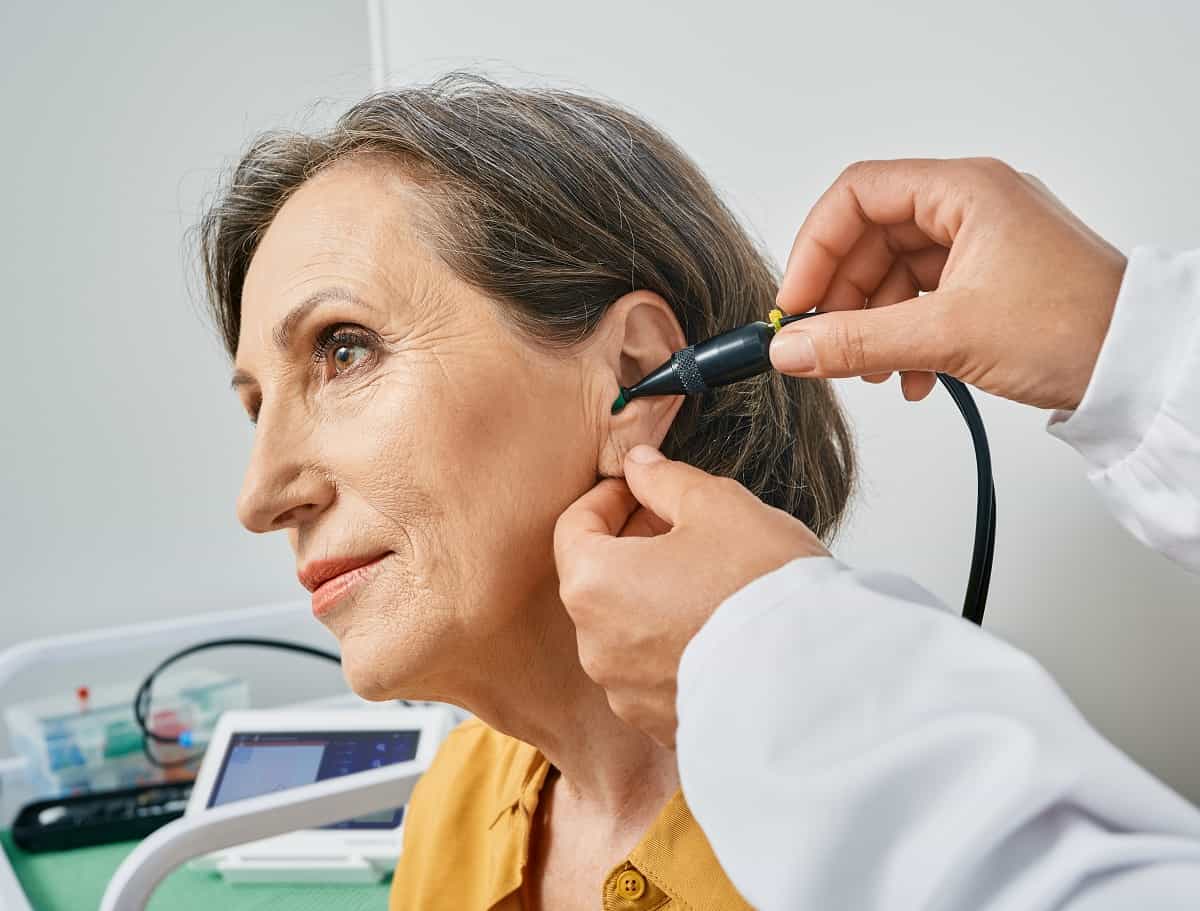Imagine not being able to hear the instructions given by your healthcare provider or not being able to understand the warning signs in case of an emergency. For older adults living in care homes and hospitals, this is a reality all too often. Despite the high prevalence of hearing loss in this population, it is often overlooked or untreated, leaving them at risk for poor outcomes and a lower quality of life.
In this blog post, we’ll explore the impact of hearing loss on older adults in care homes and hospitals, and what those in the care and healthcare industry can do to improve health outcomes for this group.
The impact of hearing loss on older patients
Hearing loss can have a significant impact on older adults in care homes and hospitals. Some of the most common effects include:
Increased risk of falls and accidents: If you can’t hear well, you may not be able to hear warning signs, such as alarms or people calling out to you. This can increase the risk of falls and accidents.
Social isolation and depression: Hearing loss can make it difficult to communicate with others, which can lead to feelings of isolation and loneliness. This can contribute to depression, which is a common problem among older adults in care homes and hospitals.
Difficulty communicating with healthcare professionals: If they can’t hear well, they may have trouble understanding what your healthcare professionals are saying. This can make it difficult to follow treatment plans and can delay recovery.
Delayed recovery and poorer outcomes: Hearing loss can make it difficult to stay engaged in their care and recovery, which can lead to delayed recovery and poorer outcomes.
How care providers can identify and accommodate the needs of patients with hearing loss
Care providers can better identify and accommodate the needs of patients with hearing loss by implementing the following strategies:
Regular hearing screenings: Care providers should perform regular hearing screenings for all patients, especially older adults and those with known risk factors for hearing loss. This can help identify patients who may have hearing loss and who may need further evaluation.
Communication accommodations: Care providers should make sure that they are using effective communication strategies when interacting with patients with hearing loss. This can include speaking clearly and at a moderate volume, using visual cues, and repeating important information.
Assistive technology: Care providers should be familiar with and have access to assistive technology, such as hearing aids, cochlear implants, and assistive listening devices. These devices can help patients with hearing loss hear more effectively and communicate more easily with healthcare professionals.
Staff education: Care providers should be educated on how to identify and accommodate the needs of patients with hearing loss. This can include education on the impact of hearing loss, effective communication strategies, and the use of assistive technology.
Patient education: Care providers should also educate patients with hearing loss on how to manage their condition and use assistive technology. This can include providing information on how to use and maintain hearing aids, and how to communicate effectively with healthcare professionals.
Collaboration with audiologists: Care providers should work closely with audiologists to ensure that patients with hearing loss receive the most appropriate care. Audiologists can provide specialized assessments and can provide recommendations for treatment and assistive technology.
By implementing these strategies, care providers can better identify and accommodate the needs of patients with hearing loss, which can lead to improved communication, better outcomes, and a higher quality of life for patients with hearing loss.
The patient should still seek hearing treatment.
If you’re an older adult living in a care home or hospital, there are many benefits to getting early treatment for your hearing loss. With better hearing, you’ll be able to communicate more effectively with your healthcare professionals and loved ones. This can help you follow your treatment plans more easily and can lead to better recovery outcomes. Also, by staying engaged in your care and recovery, you’ll be more likely to recover more quickly and with better outcomes.
If you know someone living in a care home or hospital and you think you might have hearing loss, don’t hesitate to visit us today. By getting treatment, they can enjoy a better quality of life, improved safety and enhanced communication.
At our hearing practice, we strive to provide the best possible care for our patients, and we would love to help your loved one regain your hearing. Don’t wait, schedule your appointment today and help them take the first step towards better hearing and a better life.


